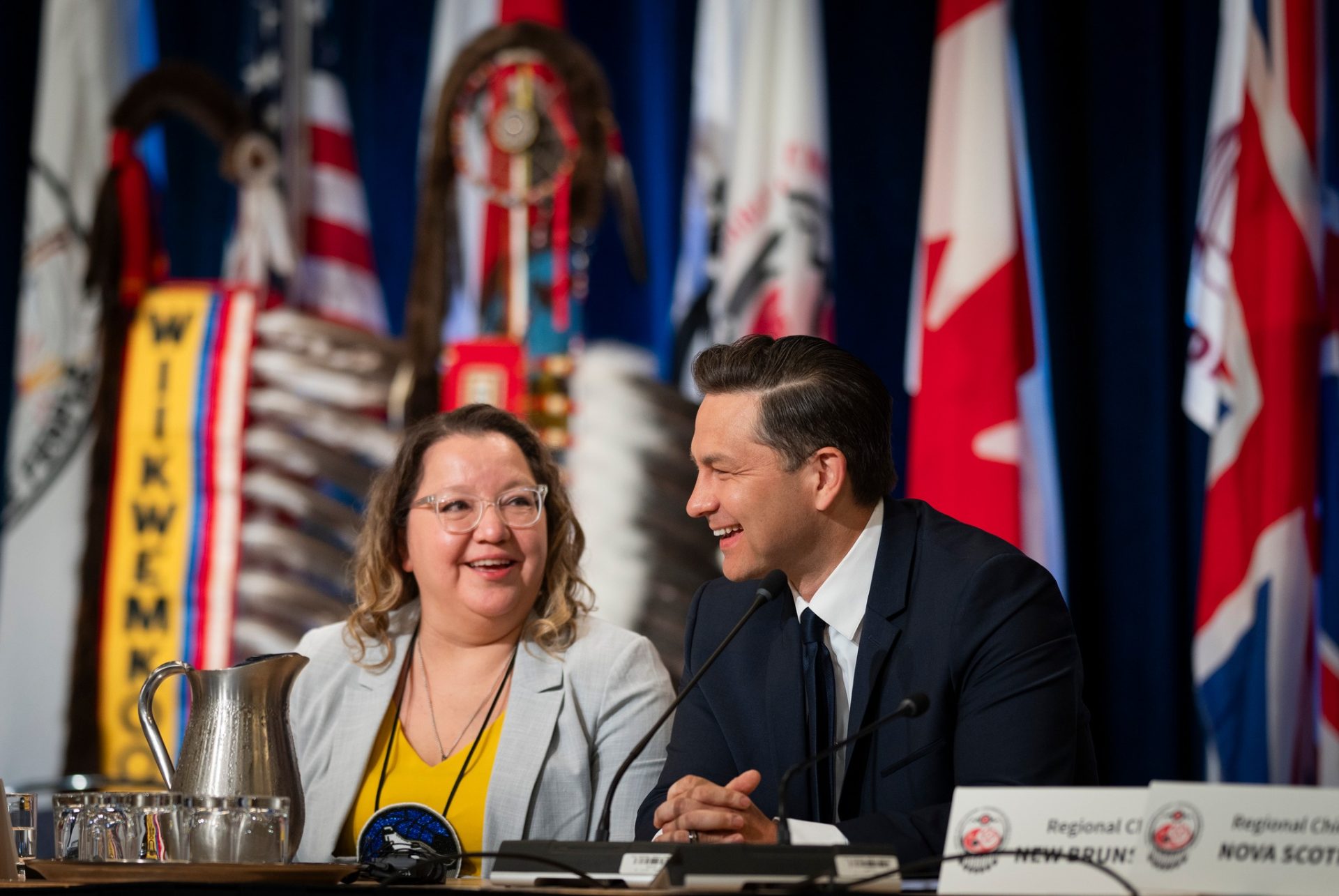
Pierre Poilievre was given time to speak at the most recent Assembly of First Nations general assembly. This demonstrates that there is a layer of Indigenous capitalists who are seeking rapprochement with the system to get a piece of the pie for themselves.
Poilievre speaking at the AFN general assembly was shocking to many as he certainly isn’t known as a champion of Indigenous people. He first got serious attention in the media after saying that Indigenous people need to “learn the value of hard work”, and he’s since formed alliances with open residential school deniers. So why are First Nations chiefs looking to work with him?
Notable is Poilievre’s changed approach. Previous Conservative leaders would simply try to steamroll Indigenous people, but that approach would sometimes blow up in their face. For example, attacks from the Harper government set-off Idle No More, one of the biggest Indigenous movements in recent history.
However, increasingly the Canadian state has changed how it deals with Indigenous people. The ruling class has built-up a layer of wealthy chiefs and native entrepreneurs to support the interests of the system from within Indigenous communities. In terms of class interests, this layer has absolutely no problem working with someone like Poilievre.
Cindy Woodhouse Nepinak, the new AFN national chief and Harvard school of business alum, has led this charge. She’s pushing the AFN to make inroads with the Conservatives, and since taking office, she’s regularly met with Poilievre.
In opportunist fashion, Poilievre recited platitudes against colonialism, celebrated “Indigenous entrepreneurship”, denounced government overreach and argued for a capitalist road to liberate Indigenous people from poverty and dispossession. He claimed he would slash government bureaucracy and eliminate regulation and provide business opportunities for First Nations people. This is what he calls “economic reconciliation.”
And it is clear what Poilievre is trying to accomplish. One of the big thorns in the side of Canadian capitalism has been Indigenous resistance to resource development projects on Indigenous land. Big infrastructure projects like pipelines have been delayed and mired in court cases due to Indigenous blockades and legal challenges. What his plans for “economic reconciliation” mean is that he will try to find a way to get these projects built by giving a layer of Indigenous capitalists and bureaucrats a slice of the profits. We must be clear: this is not the road to liberation.
A Poilievre government would be a government of the Canadian capitalist class—the same capitalist class which came into existence through theft and exploitation of Indigenous people. A Poilievre government will be a government of the oil barons and mining companies. The capitalists have learned that a frontal attack on indigenous communities like Harper did won’t work. Poilievre will therefore continue the tradition of Trudeau of getting on board a layer of Indigenous capitalists who will support the government and the system so long as they get a cut of the profit. This they hope will mollify resistance to these projects.
But not all AFN members were happy that Poilievre was invited to speak. Eight members staged a silent protest by turning their backs to the Conservative party leader as he spoke. But what is the way forward for Indigenous people?
Many are upset at Trudeau, whose performative statements have obviously not solved anything.
But we don’t need to support one of the two wings of the Canadian ruling class—we can fight against both of them and their entire system at the same time!
Communists fight, not for Indigenous capitalism, but for a system where the land and resources can be held in common and managed for the well being of all of society. We fight to return to the way in which many indigenous societies lived prior to colonization—a communist way of life—that is the true path for Indigenous liberation.

